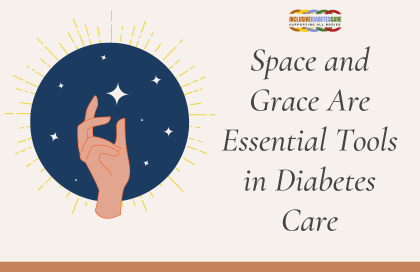There is a lot to understand when it comes to diabetes distress. The following articles are also helpful.
Let's Help People With Diabetes Feel Seen And Heard!
Johnny raises his hand energetically, trying to catch the educator's eye, while Susie slides deeper into her chair. Chris interrupts the conversation, restating his point. What do these situations have in common? You are right if you guessed, it relates to being seen and heard! What is the feeling of being seen and heard? Why is it essential in diabetes…
Learning objective
Define the state of mental health and diabetes care
List two ways Acceptance can help with blood sugar management
Participate in a Case Study
Timed Outline and Reference
Megrette Fletcher M.Ed., RDN, CDCES who has no conflicts to report
1-10 minutes: Brainstorm Activity - How can we promote acceptance?
11-15 minutes: Scope of the mental health concerns in Diabetes
21-30 minutes: Strategies to promote acceptance: An overview of ACT
31-40 minutes: How does holding a nonjudgmental stance reduce diabetes distress?
41-50 minutes: Case study: Meet Gabriel: He is a 48-year-old male
51-60 minutes: Documenting your visit, reviewing the EMR Swipe file and Q&A
We have talked about creating drop-downs that can make charting easier.
Standard diet: 30-75 grams of carbs
Maybe how the client presents - open to learning or closed.
If the client is expressing internalized weight bias
References:
Malmir T, Jafari H, Ramezanalzadeh Z, Heydari J. Determining the Effectiveness of Acceptance and Commitment Therapy (ACT) on Life Expectancy and Anxiety Among Bereaved Patients. Mater Sociomed. 2017 Dec;29(4):242-246. doi: 10.5455/msm.2017.29.242-246. PMID: 29284992; PMCID: PMC5723182.
Barney JL, Lillis J, Haynos AF, Forman E, Juarascio AS. Assessing the valuing process in Acceptance and Commitment Therapy: Experts' review of the current status and recommendations for future measure development. J Contextual Behav Sci. 2019 Apr;12:225-233. doi: 10.1016/j.jcbs.2018.08.002. Epub 2018 Aug 10. PMID: 31828006; PMCID: PMC6905635.















Share this post